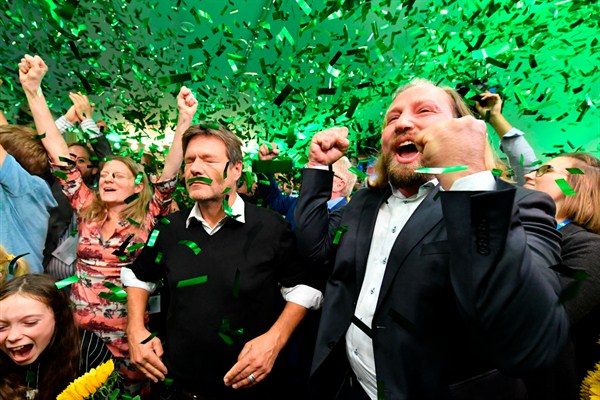While much has been made of the rise of the far-right Alternative for Germany, or AfD, party, it was the left-wing Greens that recorded the biggest gains in last week’s state elections in Bavaria. By winning more than 17 percent of the vote, the Greens nearly doubled their total from Bavaria’s last elections in 2013 and will enter the new state parliament as the second-largest bloc.
Their success amid the ongoing collapse of Germany’s political center was a sign that across the spectrum, and not only on the right, voters are beginning to harden around the political extremes. If that trend continues, the question for the Greens is whether they will sustain their momentum through a series of upcoming state elections to truly transform themselves into a national alternative to the AfD. There were also some indications out of Bavaria that the political center isn’t totally disappearing—just its traditional representatives are.
Bavaria has long been dominated by the center-right Christian Social Union, or CSU, the sister party of Chancellor Angela Merkel’s Christian Democratic Union, or CDU, and a member of the national governing coalition that was formed following last year’s federal elections. Like every party in that centrist coalition—which also includes the center-left Social Democrats, or SPD— the CSU has seen its fortunes plummet. A party that has consistently returned absolute majorities in Bavarian state elections pulled in less than 40 percent of last week’s vote.

